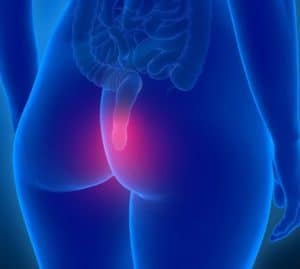Hemroid treatment – is it related to diet and foods?
Even if not so many people knows, between our daily diet and hemroid treatment is a close connection. As I have said in other articles, our diet we can support our health if we choose appropriate foods. Otherwise, if we do not respect a minimum diet, we can get sick and one of the negative consequences can be hemorrhoids. Hemroid treatment begins with knowledge of the hemorrhoids causes. If we do not know why we avoid, we can not treat effectively.
3 essential nutrients that should not miss in the diet
1. Calcium – essential for muscles and bones
Calcium is one of the most important nutrients that our body needs to keep healthy. We need calcium to strengthen bones and so the entire skeleton of the body throughout life. And that’s not all. Apart from its role in maintaining a normal heart rhythm, calcium has an important function in blood clotting and when the body’s muscular system. More than 99% of the total amount of calcium available to the body is stored in bones, while the remainder is found in muscle, blood and intracellular fluid.
Besides maintaining bone health, calcium is essential for muscles to remain in the best shape for the nervous system to work properly. In addition, calcium plays an important role in the production of hormones and enzymes in the body.
A healthy diet should contain 1200 mg of calcium each day. Three dairy based meals per day give most people the amount of calcium required. It is best absorbed by the body in the presence of lactose, the natural sugar of milk. Calcium can be obtained from the following foods:
– Yogurt – is the ideal option, especially for people who do not like or can not stand milk. Choose options simple, natural, fat-free. They have the largest amount of calcium.
– Cheese – depending on brands that you like, you can choose between versions fatter (less healthy) and weaker (more healthy), but all contain a considerable amount of calcium.
– Salmon – this is not only an excellent source of healthy fats but is rich in cacliu and vitamin D, the latter helping the body to absorb more calcium.
2. Magnesium – essential for the immune system
This powerful mineral participate in hundreds of bodily functions that favor the well. It helps to strengthen bones, increase immune resistance and normalizes heart function, muscles and nerves.
Magnesium participates in digestion and helps the body to more efficiently consume food. When is not enough, we are dealing with abdominal discomfort, bloating and other problems. Magnesium acts as a coenzyme along the digestive tract, which means that besides devouring food helps the body absorb nutrients. It also stimulates the production of hydrochloric acid in the stomach and bile in the liver.
Also, magnesium is the fourth in the ranking of the most important minerals in the human body, as they participate in more than 300 metabolic processes including the one that regulates blood sugar levels. Magnesium deficiency is associated with insulin resistance, a symptom that leads to diabetes and other chronic diseases.
More that, magnesium provides heart health, as involved in the effective delivery of potassium, calcium and other nutrients at the cellular level. According to a 2006 study published in the journal Modern Nutrition in Health and Disease, all these nutrients promote the health of nerve, muscle and a normal heart rhythm.
Men need about 400 milligrams of magnesium per day and women 300 milligrams. It can be obtained from the following foods:
– grains;
– pumpkin seeds;
– almonds;
– yogurt with a small amount of fat;
– soybeans.
3. Potassium – essential for nerves and muscles
Potassium is present in every cell of our body. It plays an important role in normal muscle contraction, the transmission of nerve impulses, and balance. Potassium helps to strengthen bones and energy production.
An adequate intake of potassium combat hypertension. Men and women over 19 need 4,700 milligrams of potassium per day. We can get potassium in these foods:
– white beans;
– spinach;
– sweet potatoes;
– yogurt with a small amount of fat;
– orange juice;
– broccoli.
If you take a more attention to your diet and your body will be more happy!
